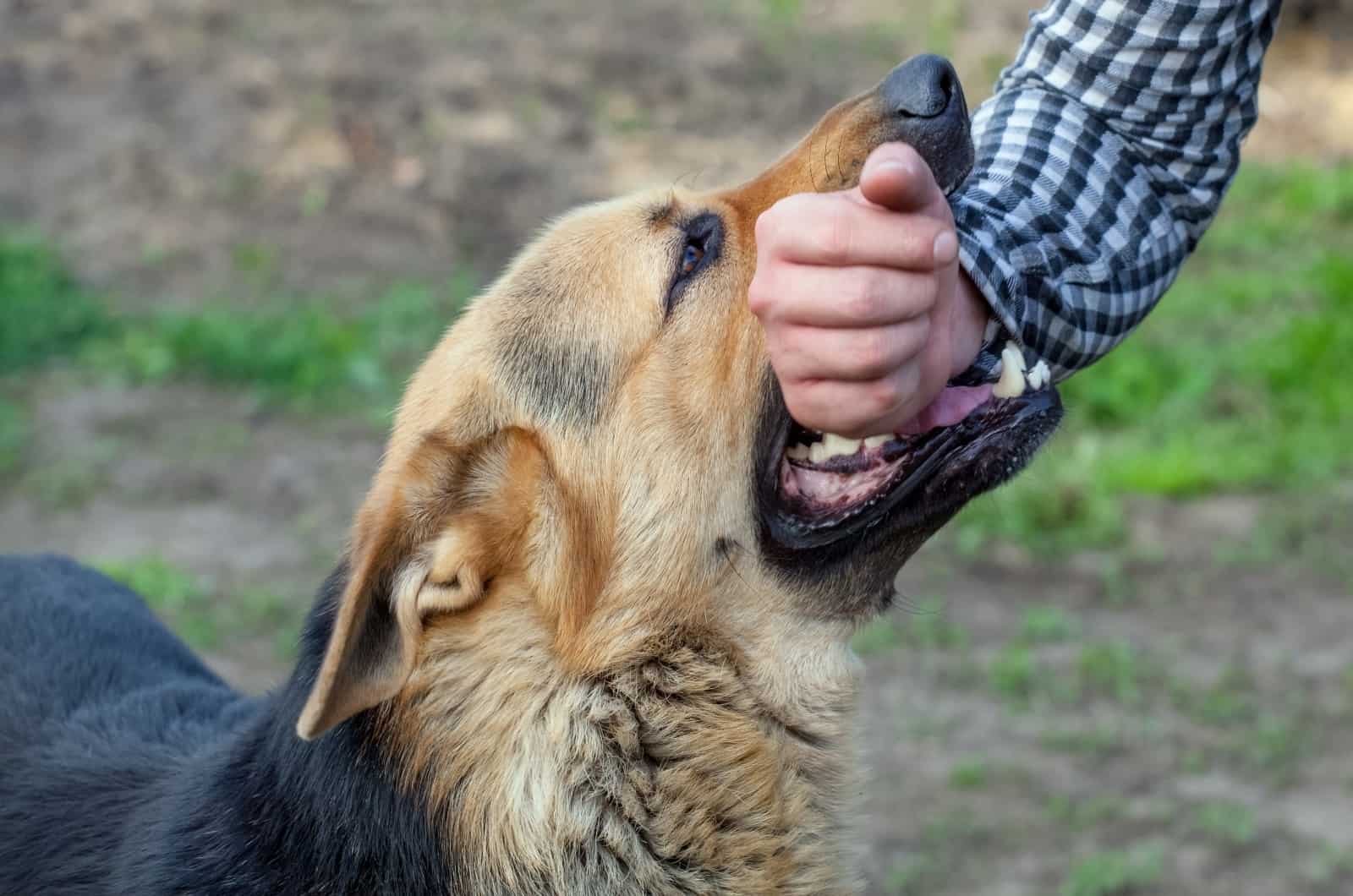The ‘‘Why do German Shepherds bite’’ dilemma does not come with only one explanation. These German beauties are known to be dogs with a complex character, which is why their behavior is sometimes hard to figure out at first.
Biting in dogs generally derives from their aggressive behavior, but that doesn’t always have to be the case. Light biting, popularly known as mouthing, is used by a plethora of dogs as body language.
Throughout this article, we’re gonna explain six different reasons why GS canines bite, so my advice is to spare several minutes, pour yourself a nice cup of coffee, and enjoy the read!
Why Do German Shepherds Bite
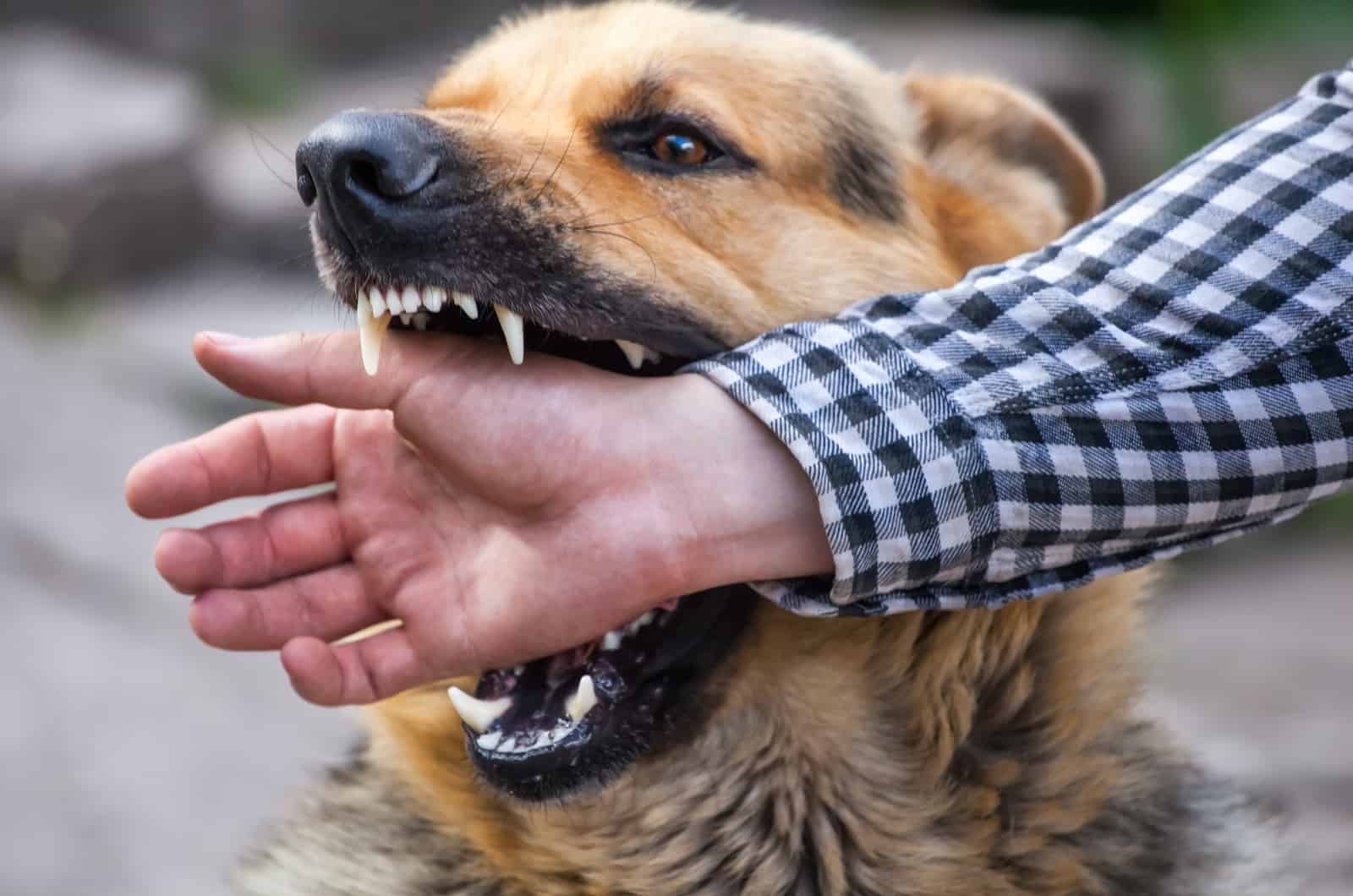
According to the American Kennel Club, German Shepherd puppies are known to be among the most popular dogs in the world. When socialized, these pooches display a minimum amount of aggression or no aggression at all.
First of all, dog owners should know the difference between biting and mouthing. The first generally happens as a result of aggression, frustration, or indignation, while the latter can be rooted in affection, loyalty, and excitement.
Still, the reason why some GSD puppies bite lies in the fact that these pooches are aggressive towards strangers, enemies, and other predators. A dog bite is used by this medium to large breed as a defense mechanism.
Here are some other reasons for ‘’why do German Shepherds bite.’’
1. Force Of Habit
Training your German Shepherd as soon as you pick it up from the breeder is the best way towards a well-mannered puppy. Unfortunately, not all dog owners know or do that!
Instead of early obedience training and socialization, they enjoy simple frolicking with their GSD, which is fine, as long as they don’t subconsciously teach them to bite.
Many GSD puppies bite as a result of learned behavior. If you have encouraged biting when they were just a couple of months old – it is most likely that your dog will pick up this behavioral pattern in the future, too.
One of the most common reasons for GSD biting is rooted in bad parenting. Dog owners who don’t know how to draw the line between mouthing and biting are often faced with an undesirable behavior in their GSD in the long term.
Consequently, bad parenting goes along with poor socialization, which is why many owners have a big problem in the future. Socializing an already aggressive dog is a much more complex process than socializing a puppy.
2. Lack Of Socialization
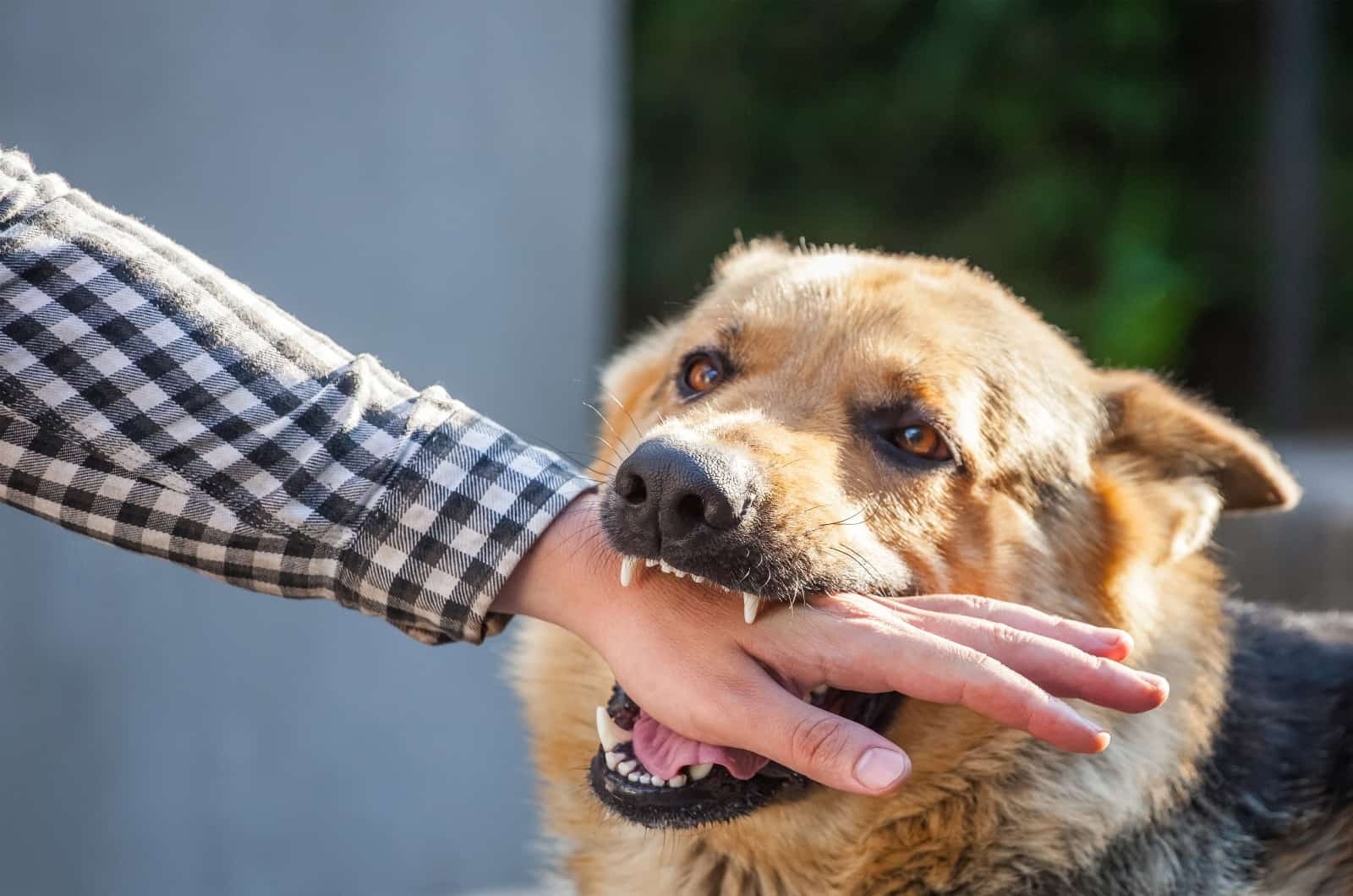
Lack of socialization is another reason behind ‘’why do German Shepherds bite.’’ This is an aggressive dog breed, which means that these pooches generally need more socialization than some other dogs.
German Shepherd owners need to subject their canines to socialization training from early puppyhood. Otherwise, they can trigger aggressive behavior in a German Shepherd dog, which results in biting, growling, barking, and howling.
A GS dog’s behavior is a complex matter. As a responsible owner, you should always look for unusual behavioral patterns and try to find their cause. If your GSD puppy is biting only strangers, it is most likely that it needs some extra socialization.
Socializing an aggressive GSD can be quite exhaustive – you can always seek help from experienced dog trainers or dog behaviorists.
3. Body Language
Not all GSDs bark when they want to tell you something. Some GSDs stare at you, while others even bite! Even though this behavioral pattern should not be encouraged, biting in your GSD puppy can be a body language tool.
They bite when they want dog food, when they want to go out, or simply when they want your attention. Biting in socialized GSDs is often considered as light biting or mouthing as your dog doesn’t tend to hurt you.
Even though it can look sweet on the side, this sort of behavior should be avoided. GSD puppies generally have a strong bite force, and they are usually not aware of their power.
4. Aggression
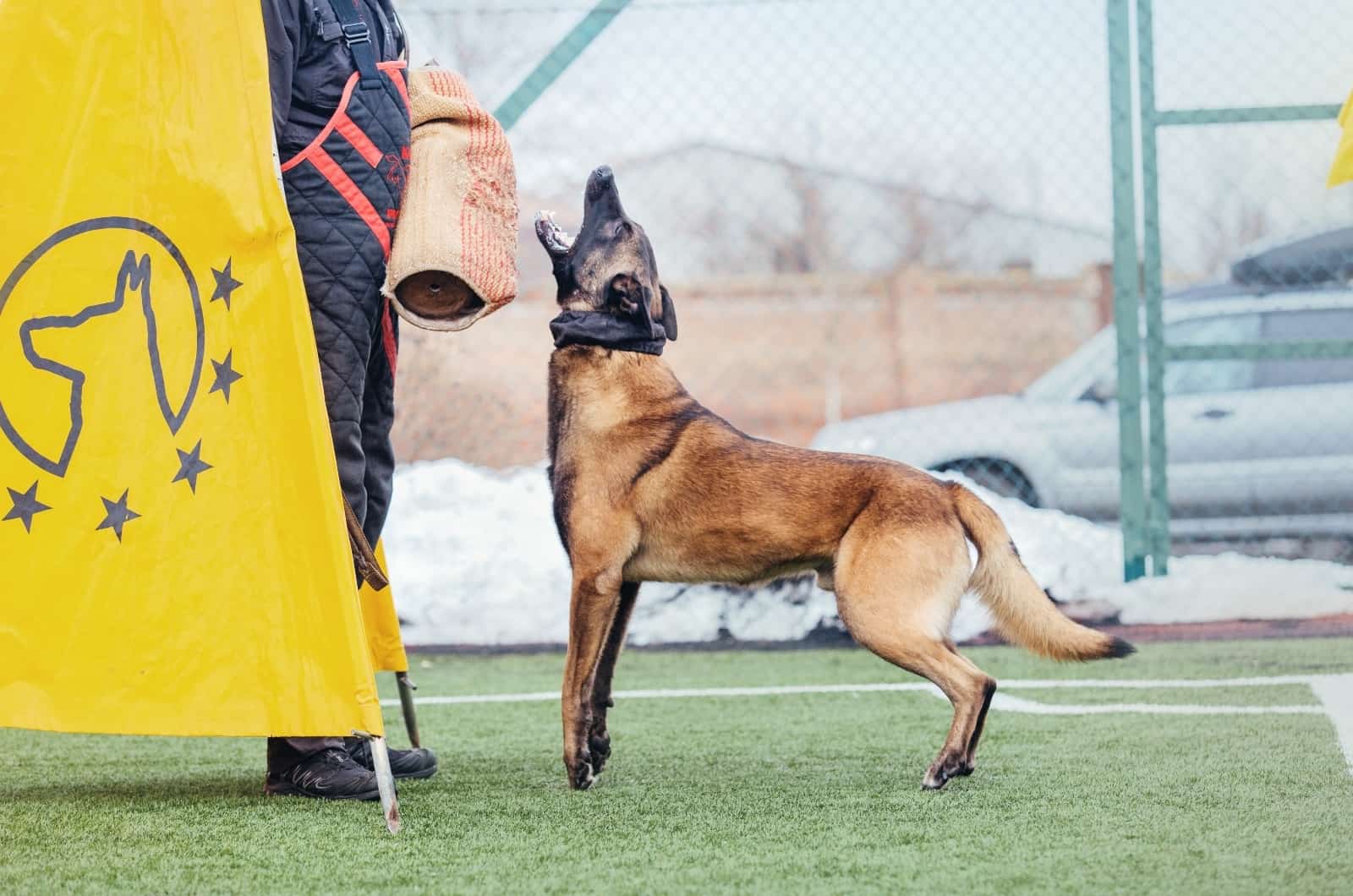
Both male and female GSDs are considered to be aggressive dogs by default, which can be the answer to the ‘‘why do german shepherds bite’’ dilemma.
That being said, these canines need to be subjected to an adequate training program. Socialization training is a good start.
Just like their Rottie or Pit Bull counterparts, these pooches use biting as a natural self-defense mechanism against enemies and predators.
Unfortunately, untrained GSDs cannot tell the difference between enemies and friends that come over to your house, which is why it is highly likely that they will bite to protect themselves.
On the other hand, these pooches have a high prey-drive, which is why it would be a smart choice to train them in obedience as soon as you get them from the breeder.
Lastly, your GS canine can display aggressive behavior at times of a serious health issue or an injury.
Ill or hurt dogs bite to protect themselves from further pain. That’s why if you notice other accompanying symptoms in your dog, you should see a veterinarian as soon as possible.
5. Affection
Even though it is not one of their regular signs of affection, some GSDs use light biting or mouthing to express their deepest emotions to their loved ones.
If you see your GSD wagging its tail while mouthing your hand, one thing is for sure – your GSD is showing you affection! Not all dogs (especially big guard dogs) have the habit of cuddling. That usually belongs to smaller breeds, such as Maltese or Chi puppies.
However, GSDs are known to be excellent family pets that get along with all family members just fine, including young children. During their playtime, some GSDs use body language to express gratitude, affection, love, and devotion to their loved ones.
Some GSDs can be taught to be excellent nannies, which is why they may use mouthing to prevent small children from falling or from going to dangerous places, such as stairs.
6. Attention Seeking
If you’re wondering why your GSD is so hyper, the answer may be it seeks attention! By the same logic, some GSDs mouth and bite their owner.
GSDs use light biting when they want to initiate playtime. This is an extremely active and attention-seeking breed that needs exercise at least one to two hours during the day. Their exercise doesn’t just include walking, hiking, or running.
On the contrary, these pooches love being mentally stimulated, which is why engaging them in interactive games is an excellent way to stimulate their intelligence.
GSD canines that are used to these sorts of activities can use light biting to remind their owner of their daily playtime. They also mouth when they want to remind you that it’s feeding time!
How To Train Your GSD Not To Bite You
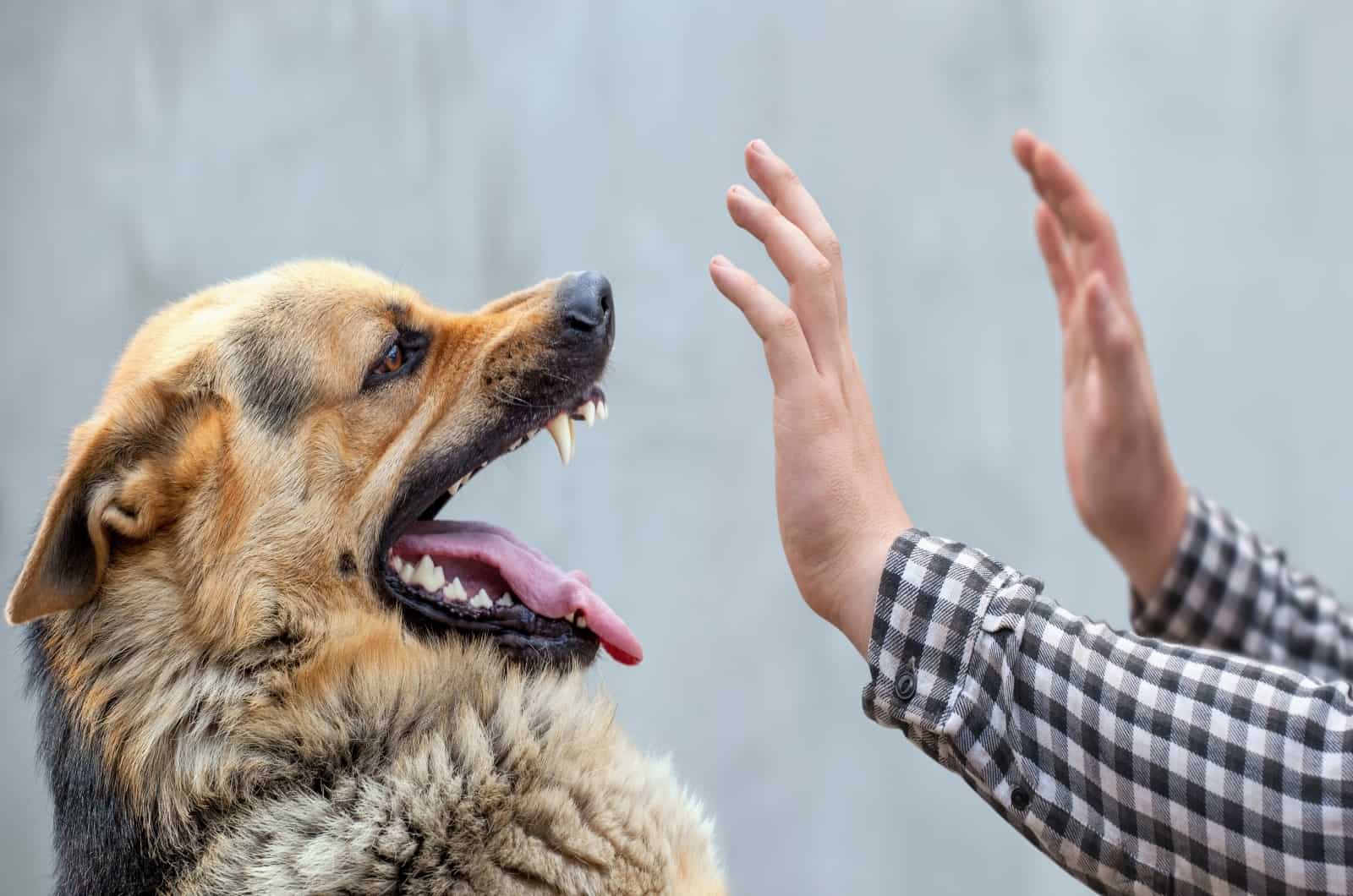
1. Early Socialization And Obedience Training
There are two things every GSD owner should take into consideration – early socialization and early obedience training. These pooches need proper training in order to remain calm and friendly. Otherwise, you may deal with an aggressive dog.
As soon as they show their puppy teething symptoms, and start fooling around with their littermates – these dogs need training. GSDs are known to have high herding instincts, which is why they may be extremely unsocial in public spaces if not trained in time.
Due to their herding instincts, they may bite or bark excessively. However, properly-trained GSDs have no difficulty adopting appropriate behavior patterns as these pooches learn on the spot!
If, however, you have difficulties training your dog, you can always use supplements, such as dog training collars, or you can get help from a professional dog behaviorist.
2. Positive Reinforcement
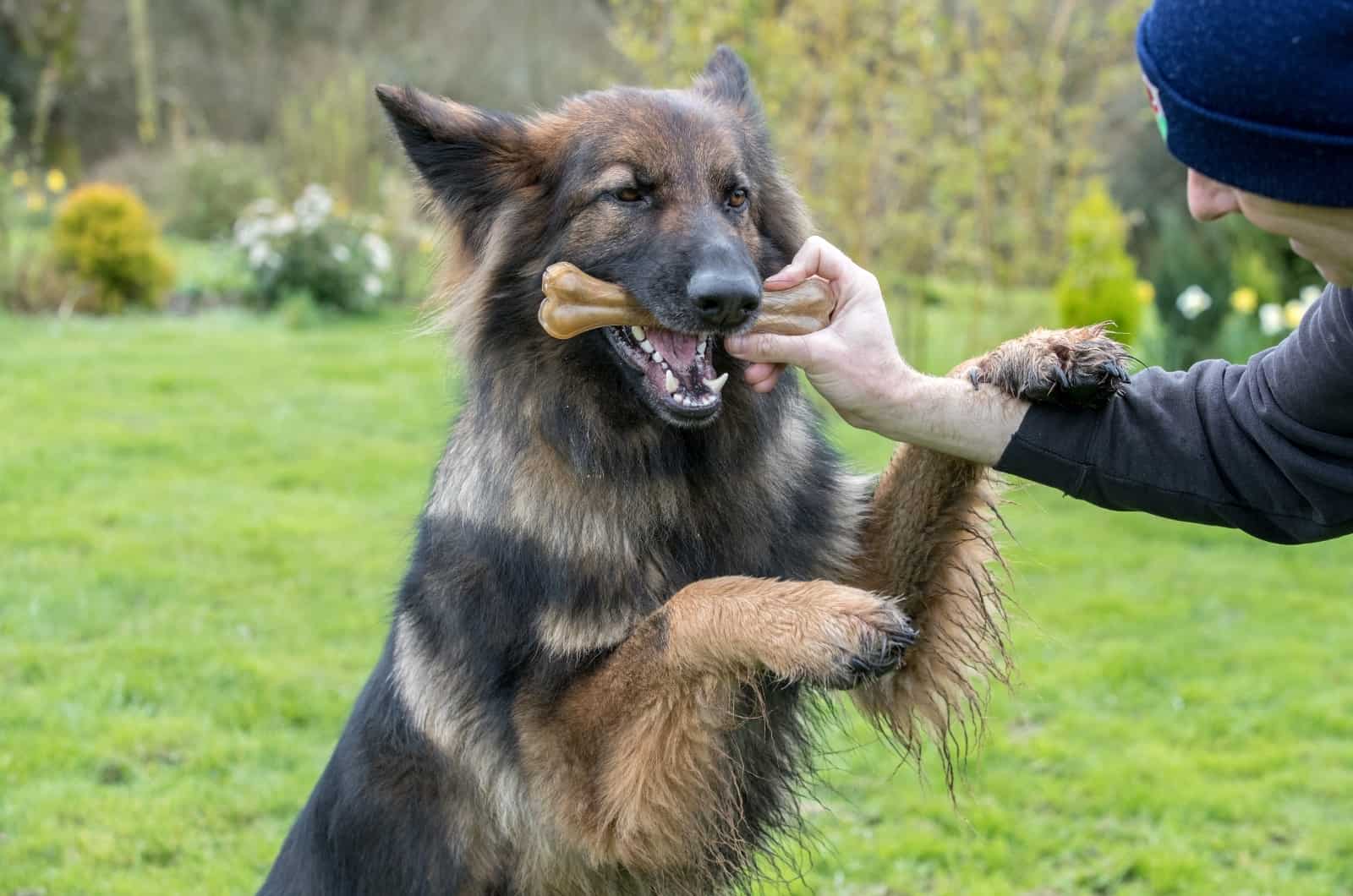
Do you keep wondering: ‘‘What is the best way to train my German Shepherd?’’ Well, the answer is simple – positive reinforcement!
These pooches respond excellently to positive reinforcement techniques, which is why you should always use them instead of harsh training methods.
If you want to teach your dog not to bite – try with tasty treats, interactive dog toys, chew toys, interactive games such as tug of war or hide and seek, or so. Use ‘‘timeout’’ instead of yelling, or snack withdrawal instead of punching.
Positive reinforcement training methods are proven to be much better than the old, orthodox ones. GSDs are extremely food- and mental stimulation-motivated, which is why they will do anything when approached the right way.
3. Disciplining On The Spot
One of the best methods of disciplining your dog is teaching things on the spot. Teaching your own dog how to behave as soon as it displays undesirable behavior is probably the most effective way for him to learn what not to do.
For instance, if your puppy has just bit you – try using a hand signal or your voice in a disapproving manner. A full-blooded GSD won’t have a problem adopting that sort of response as a sign not to do that particular action in the future.
GSDs are extremely smart dogs that learn quickly. It is just a matter of training, the owner, and the timeframe.
Conclusion
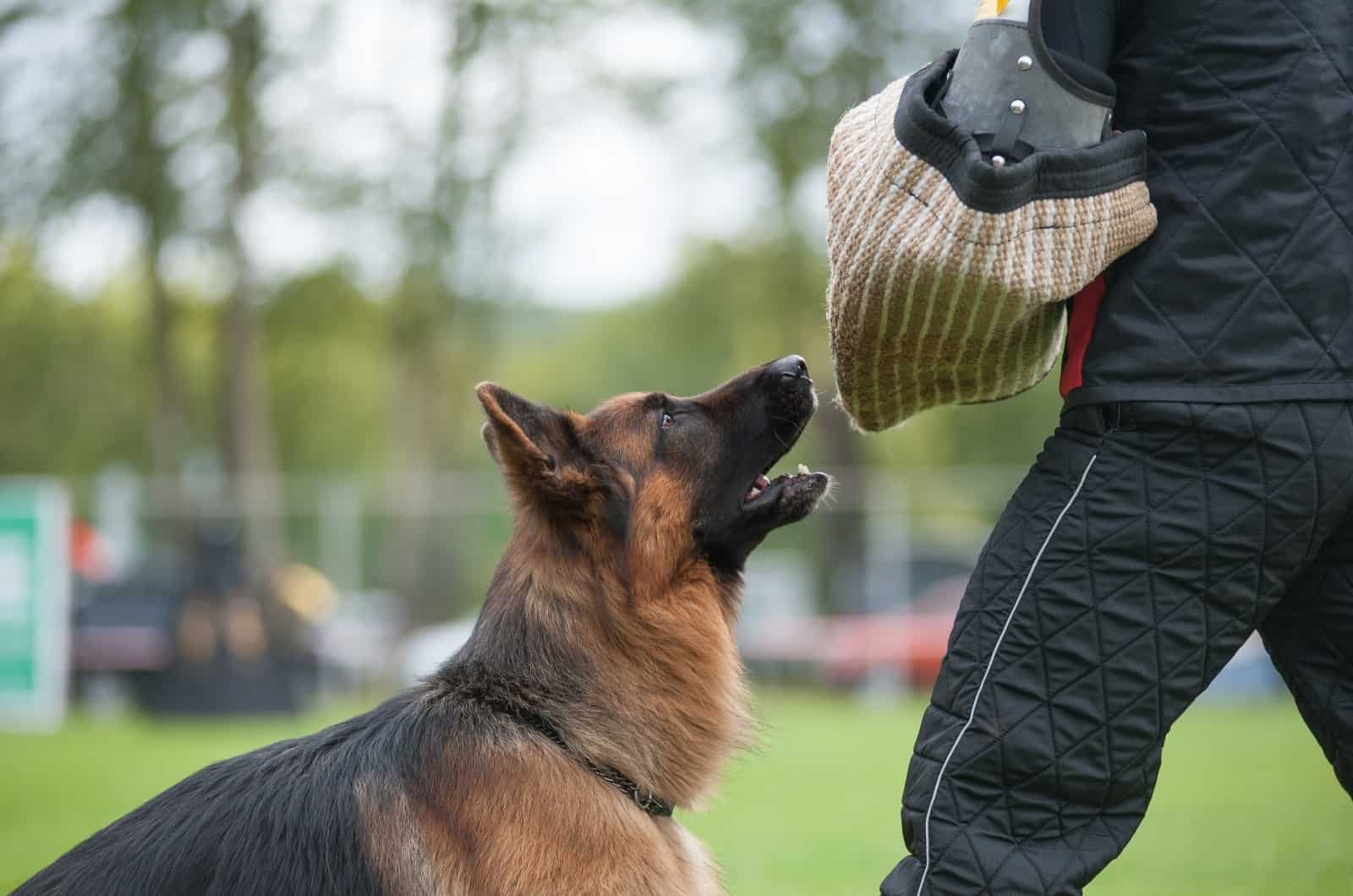
The ‘‘Why do German Shepherds bite’’ dilemma is not always rooted in aggression. Light biting, popularly known as mouthing, is not that uncommon in these purebred pooches either.
In order to recognize the trigger of GSD biting, you also need to look into other accompanying signs. It is crucial to understand whether biting comes from positive or negative behavior as it is much easier to deal with this undesirable pattern if it derives from simple excitement or affection.
On the other hand, dogs that bite due to aggressiveness need to be subjected to serious training as soon as possible. These canines have a strong bite force, which is why this sort of behavior is highly disapproved and needs to be removed.
The best way to teach your GSD dog manners is if you start from an early age. Early-socialized and obedience-trained GSDs are highly unlikely to display any sort of undesirable behavior.
Read more: German Shepherd Howling – 9 Causes And How To Prevent It
